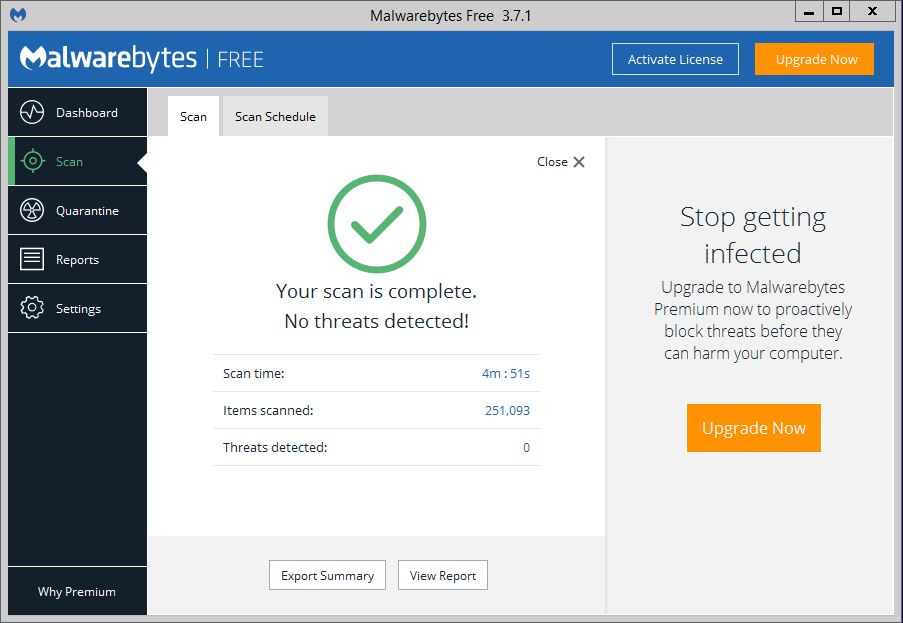

File System Objects: Files which may contain malicious programs or harmful code snippets.Registry Objects: Configuration changes made to the Windows registry.Startup Objects: Executable files and/or modifications made during computer startup.Memory Objects: Memory allocated by operating system processes, drivers, and other applications.Threat Scans check the following on your endpoints: Threat Scans use heuristic analysis, a technique that looks for certain malicious behaviors in files that Malwarebytes hasn't seen before. Run a daily Threat Scan to keep your endpoints safe. Threat Scans detect the most common threats by scanning conventional locations on an endpoint where threats can occur. For more information on scheduled scans, see Set scheduled scans in Nebula.For more details on setting up scans, see Scan Options in Configure Settings options in Nebula.Options for scans are set within a policy. Scans may be run manually across endpoints or scheduled at a time that works best for you. This article explains the types of scans and the options available for each.

The Software Inventory Scan updates endpoint information in the console. Malwarebytes Nebula provides a quick Hyper Scan, a more in-depth Threat Scan, and Custom Scans.


 0 kommentar(er)
0 kommentar(er)
